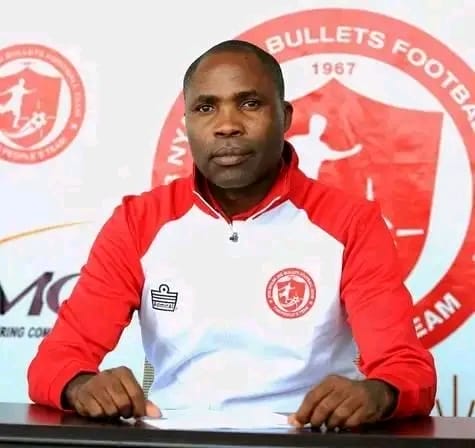In the world of sports, particularly football, winning is not just the goal—it’s the standard by which coaches, players, and teams are judged. For Nyasa Big Bullets, one of Malawi’s most illustrious football clubs, recent back-to-back defeats at the hands of their arch-rivals, Mighty Wanderers, have sparked an intense debate about accountability and future direction.
As the dust settles on these disappointing performances, there is a growing conversation among fans, pundits, and stakeholders about who should bear the brunt of the blame.
Is it time for Peter Mponda, the head coach, to take his leave, or do the players share equal responsibility for these disheartening outcomes?
Nyasa Big Bullets’ recent woes began with a stinging 3-0 defeat in a TNM Super League match at Kamuzu Stadium. Salt was rubbed into the wound when, just days later, they succumbed to a 1-0 loss in an FDH Cup encounter at the same venue, against the very same opposition.
These consecutive losses against their fiercest rivals have put the spotlight squarely on the team’s leadership and performance on the pitch. With the same squad, same coach, and same ground, fans are left questioning why the outcomes were the same — and in search of change.
The role of the head coach in any football team is pivotal. Peter Mponda, as the leader of the technical team, is tasked with not only developing strategies and tactics but also instilling a winning mentality in his players.
Football coaches are often critiqued more harshly than their players because their tactical acumen, adaptability, and man-management skills are vital to securing victories.
In the context of Nyasa Big Bullets’ recent displays, critics argue that Mponda’s tactical approach has been predictable and uninspired—failing to counteract their rivals’ strategies and exploit their weaknesses.
His match-day decisions, player positions, and substitutions have come under significant scrutiny, with many pointing out that effective use of the squad could have mitigated the defeats.
That being said, football is a team sport where outcomes are seldom determined by a single individual.
The players on the pitch share in the responsibility for any performance. It’s not just about executing the coach’s vision; it’s about individual skill, decision-making, and the collective spirit of the team.
In both losses, several players failed to capitalize on goal-scoring opportunities, lacked defensive discipline, and seemed bereft of the fighting spirit that has characterized past Bullets teams.
Finger-pointing at the coach alone overlooks the underwhelming performances from the individuals on the field who are, after all, the executors of strategy.
However, this does not absolve the coach from blame. The best coaches are able to motivate even the most underperforming teams to rise to the occasion, especially in high-stakes matches against sworn rivals.
The successive defeats to Mighty Wanderers suggest a potential disconnect between Mponda’s directives and the players’ execution—a gap that, ultimately, the coach must bridge.
Moreover, it is the coach’s responsibility to foster a locker-room environment that encourages accountability, progress, and resilience—a culture that, if present, could have turned the tide in at least one of the matches.
Peter Mponda’s tenure has been a rollercoaster, filled with moments of brilliance juxtaposed with periods of mediocrity. As the losses mount, questions not only about his tactical aptitude but also his ability to inspire and invigorate the team arise.
It is said that a coach’s philosophy can only go as far as his ability to communicate it effectively to his players—a challenge Mponda seems to face in these crucial fixtures.
While some fans are calling for Mponda’s exit, it’s crucial to consider the broader context of the club’s recent challenges. High expectations weigh heavily on Nyasa Big Bullets, a team with a storied history and a fervent fanbase.
Instant success is demanded, yet football is a game that requires a fine blend of patience, skill development, and strategic consistency. Continuity in coaching can sometimes yield long-term rewards even after short-term disappointments—a factor that club management should weigh against the immediate calls for change.
On the other hand, there’s an undeniable argument for a new start.
A different perspective may indeed provide a spark that reignites the team’s ambition and effectiveness. A new coach might bring fresh ideas, renewed energy, and an invigorating shake-up to the squad dynamics.
Clubs often face a crossroads where they must decide whether persistent support for a struggling coach rewards loyalty or reinforces stagnation, and Nyasa Big Bullets are now at such a juncture.
Ultimately, the future of Nyasa Big Bullets lies at a critical intersection. The club must deliberate not just the fate of Peter Mponda but also the direction in which they wish to steer. Both the management and the players need introspection and must align on an actionable path forward.
Whether this means trusting in Mponda’s long-term vision despite these setbacks or opting for new leadership will be decisive. The club’s legacy, its fanbase, and its competitive ambitions hinge on this decision.
The recent twin defeats should serve as a catalyst for a comprehensive evaluation of Nyasa Big Bullets’ strategies, management, and objectives.
As pressure mounts, it is essential that any decision taken resonates with the club’s core values and long-term vision.
For Peter Mponda, the door that appears ajar could still be bolted shut, but the next steps could decisively determine whether it swings open wide to opportunity or becomes a polite invitation to part ways.
Discover more from The Maravi Post
Subscribe to get the latest posts sent to your email.



